Planetary Science
-
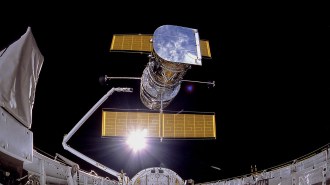 Space
SpaceSee how the Hubble Space Telescope is still revolutionizing astronomy
Hubble is still going strong 35 years after it was launched into space. Celebrate its anniversary with some out-of-this-world images.
-
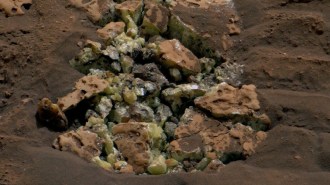 Planetary Science
Planetary ScienceCheck out some of the weird rocks that have turned up on Mars
Some of the unusual rocks carry stories about water on Mars. One has hints of long-gone microbes. All tell of a dynamic, complex planet.
-
 Space
SpaceThe nearest single star to Earth has four small planets
Last year, astronomers announced that a planet orbits Barnard’s star. Now, researchers have confirmed the existence of three more.
-
 Chemistry
ChemistryA new iron compound hints ‘primordial’ helium hides in Earth’s core
Earth’s core could contain helium from the early solar system. The noble gas tucks into gaps in iron crystals under high pressure and temperature.
By Skyler Ware -
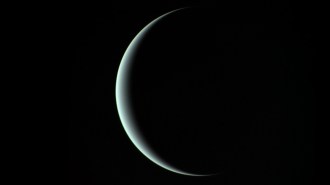 Planetary Science
Planetary ScienceUranus emits more heat than previously thought
Uranus radiates more energy than it gets from the sun, two new studies find — just as Jupiter, Saturn and Neptune do.
By Ken Croswell -
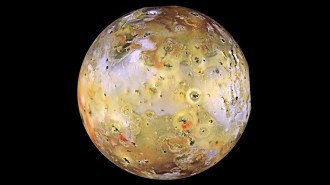 Planetary Science
Planetary ScienceJuno reveals dozens of lava lakes on Jupiter’s moon Io
NASA’s Juno spacecraft identifies over 40 enormous lava lakes on Io, shedding light on the extreme volcanism sculpting Jupiter’s moon.
-
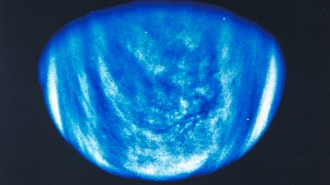 Planetary Science
Planetary ScienceA private mission to Venus aims to look for signs of life
If successful, Morning Star would be the first private mission to another planet and the first in over 30 years to directly measure Venus’s clouds.
-
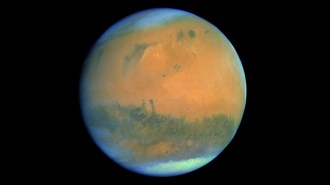 Planetary Science
Planetary ScienceAncient Mars wasn’t just wet. It was cold and wet
Mars may once have held enough water to fill oceans and form coastlines. The planet’s red dust contains water and likely formed in cold conditions.
By Skyler Ware -
 Physics
PhysicsA weird ice that may form on alien planets has finally been observed
High-pressure experiments generated the first direct observation of plastic ice, which has qualities of both crystalline ice and liquid water.
By Nikk Ogasa -
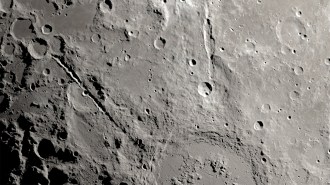 Planetary Science
Planetary ScienceThe moon’s two grand canyons formed in less than 10 minutes
Two gargantuan canyons on the moon were carved by a hailstorm of rocks — and that’s good news for future lunar astronauts.
-
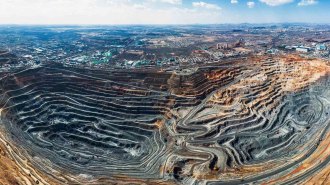 Earth
EarthAncient rocks reveal when rivers began pouring nutrients into the sea
Rivers began pumping weathered material into the sea about a billion years after Earth formed, suggesting continents may have gotten an early start.
-
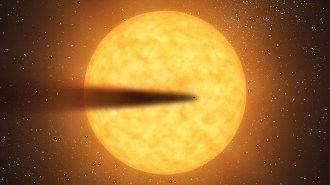 Planetary Science
Planetary ScienceA crumbling exoplanet spills its guts
Astronomers have determined the internal composition of a distant, disintegrating planet for the first time.